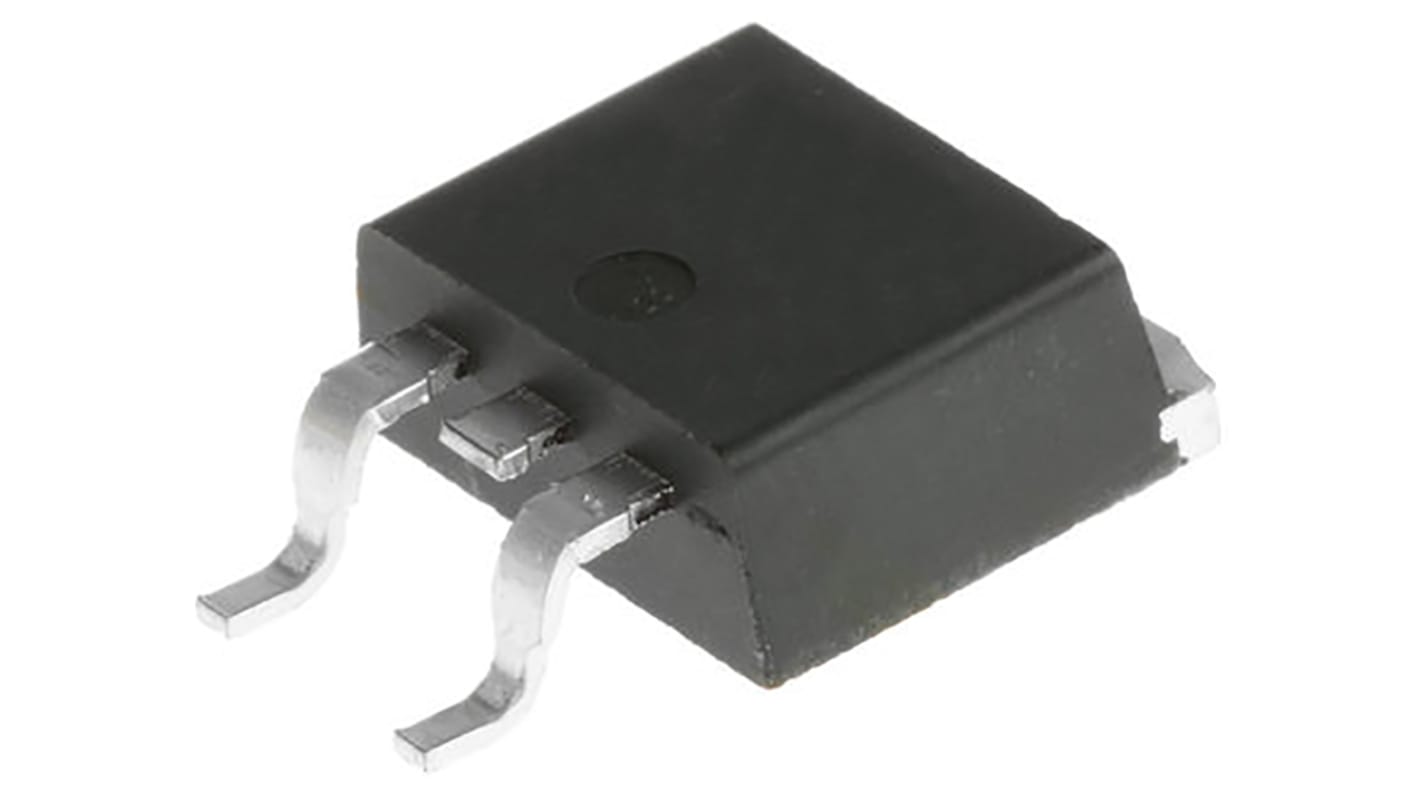onsemi QFET Type N-Channel MOSFET, 52 A, 60 V Enhancement, 3-Pin TO-263 FQB50N06LTM
- RS Stock No.:
- 671-0902
- Mfr. Part No.:
- FQB50N06LTM
- Brand:
- onsemi

Currently unavailable
We don't know if this item will be back in stock, RS intend to remove it from our range soon.
- RS Stock No.:
- 671-0902
- Mfr. Part No.:
- FQB50N06LTM
- Brand:
- onsemi
Specifications
Technical Reference
Legislation and Compliance
Product Details
Find similar products by selecting one or more attributes.
Select all | Attribute | Value |
|---|---|---|
| Brand | onsemi | |
| Product Type | MOSFET | |
| Channel Type | Type N | |
| Maximum Continuous Drain Current Id | 52A | |
| Maximum Drain Source Voltage Vds | 60V | |
| Package Type | TO-263 | |
| Series | QFET | |
| Mount Type | Surface | |
| Pin Count | 3 | |
| Maximum Drain Source Resistance Rds | 21mΩ | |
| Channel Mode | Enhancement | |
| Minimum Operating Temperature | -55°C | |
| Maximum Power Dissipation Pd | 3.75W | |
| Typical Gate Charge Qg @ Vgs | 24.5nC | |
| Maximum Gate Source Voltage Vgs | ±20 V | |
| Forward Voltage Vf | 1.5V | |
| Maximum Operating Temperature | 175°C | |
| Height | 4.83mm | |
| Width | 9.65 mm | |
| Standards/Approvals | No | |
| Length | 10.67mm | |
| Automotive Standard | No | |
| Select all | ||
|---|---|---|
Brand onsemi | ||
Product Type MOSFET | ||
Channel Type Type N | ||
Maximum Continuous Drain Current Id 52A | ||
Maximum Drain Source Voltage Vds 60V | ||
Package Type TO-263 | ||
Series QFET | ||
Mount Type Surface | ||
Pin Count 3 | ||
Maximum Drain Source Resistance Rds 21mΩ | ||
Channel Mode Enhancement | ||
Minimum Operating Temperature -55°C | ||
Maximum Power Dissipation Pd 3.75W | ||
Typical Gate Charge Qg @ Vgs 24.5nC | ||
Maximum Gate Source Voltage Vgs ±20 V | ||
Forward Voltage Vf 1.5V | ||
Maximum Operating Temperature 175°C | ||
Height 4.83mm | ||
Width 9.65 mm | ||
Standards/Approvals No | ||
Length 10.67mm | ||
Automotive Standard No | ||
- COO (Country of Origin):
- MY
QFET® N-Channel MOSFET, over 31A, Fairchild Semiconductor
Fairchild Semiconductor’s new QFET® planar MOSFETs use advanced, proprietary technology to offer best-in-class operating performance for a wide range of applications, including power supplies, PFC (Power Factor Correction), DC-DC Converters, Plasma Display Panels (PDP), lighting ballasts, and motion control.
They offer reduced on-state loss by lowering on-resistance (RDS(on)), and reduced switching loss by lowering gate charge (Qg) and output capacitance (Coss). By using advanced QFET® process technology, Fairchild can offer an improved figure of merit (FOM) over competing planar MOSFET devices.
MOSFET Transistors, ON Semi
ON Semi offers a substantial portfolio of MOSFET devices that includes high-voltage (>250V) and low-voltage (<250V) types. The advanced silicon technology provides smaller die sizes, which it is incorporated into multiple industry-standard and thermally-enhanced packages.
ON Semi MOSFETs provide superior design reliability from reduced voltage spikes and overshoot, to lower junction capacitance and reverse recovery charge, to elimination of additional external components to keep systems up and running longer.
Related links
- onsemi QFET Type N-Channel MOSFET 100 V Enhancement, 3-Pin TO-263
- onsemi QFET Type N-Channel MOSFET 100 V Enhancement, 3-Pin TO-263 FQB55N10TM
- onsemi QFET Type N-Channel MOSFET 200 V Enhancement, 3-Pin TO-263 FQB34N20LTM
- onsemi QFET Type N-Channel MOSFET 900 V Enhancement, 3-Pin TO-220
- onsemi QFET Type N-Channel MOSFET 800 V Enhancement, 3-Pin TO-220
- onsemi QFET Type N-Channel MOSFET 800 V Enhancement, 3-Pin TO-220
- onsemi QFET Type N-Channel MOSFET 600 V Enhancement, 3-Pin TO-3PN
- onsemi QFET Type N-Channel MOSFET 100 V Enhancement, 3-Pin TO-3PN
